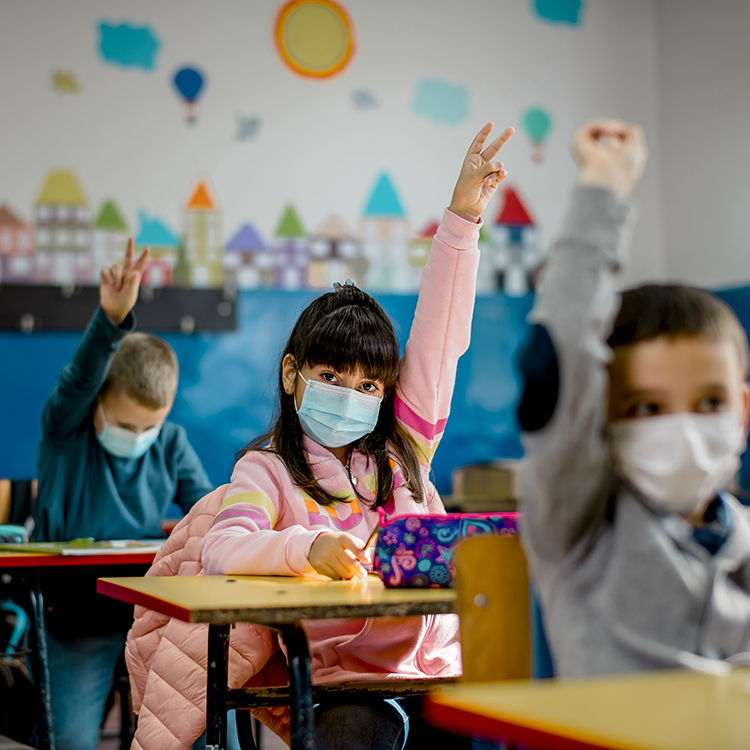Search
Research
Clinician perceptions of research priorities for the management of noncritically ill patients admitted to hospital with SARS-CoV-2 infectionThe changing phenotype of coronarvirus disease 2019 (COVID-19) may quickly render guideline-recommended interventions obsolete. We developed a 40-question clinician survey in consultation with the Australasian COVID-19 Trial site investigators. The survey was designed to assess clinician perceptions of the current treatment strategies and future research priorities in the management of non-critically ill patients admitted to hospital with SARS-CoV-2 infection.
Research
Attitudes, perceptions, and experiences of Western Australians towards vaccine safety surveillance systems following COVID-19 vaccines: A qualitative descriptive studyConcerns regarding adverse events following immunisation are a barrier to vaccine uptake. Health professionals use vaccine safety surveillance systems (VSSSs) to monitor vaccines and inform the public of safety data. With little known about public attitudes, perceptions, and experiences with VSSS, we examined them in the context of COVID-19 vaccinations in Western Australia.
Research
Respiratory syncytial virus in children: epidemiology and clinical impact post-COVID-19Respiratory syncytial virus (RSV) remains a leading cause of mortality and morbidity worldwide. RSV seasonality was disrupted by COVID-19-associated nonpharmaceutical interventions (NPIs). We review RSV seasonality, molecular epidemiology, clinical manifestations, and community awareness to inform future prevention strategies.
Research
BCG vaccination of healthcare workers for protection against COVID-19: 12-month outcomes from an international randomised controlled trialBacille Calmette-Guérin (BCG) vaccine has immunomodulatory effects that may provide protection against unrelated infectious diseases. We aimed to determine whether BCG vaccination protects adults against COVID-19.
Research
Spatial and Temporal Data Visualisation for Mass Dissemination: Advances in the Era of COVID-19The COVID-19 pandemic is the first major pandemic of the digital age and has been characterised by unprecedented public consumption of spatial and temporal disease data, which can enable greater transparency and accountability of governments to the public for their public health decisions.
Research
Convalescent plasma in hospitalised patients with COVID-19Convalscent plasma (CP) was identified as a potential therapy for COVID-19 available early in the pandemic.
Research
A digital intervention to support childhood cognition after the COVID-19 pandemic: a pilot trialDifficulties in executive functioning (EF) can result in impulsivity, forgetfulness, and inattention. Children living in remote/regional communities are particularly at risk of impairment in these cognitive skills due to reduced educational engagement and poorer access to interventions. This vulnerability has been exacerbated by the COVID-19 pandemic and strategies are needed to mitigate long-term negative impacts on EF.
Research
The influence of the COVID pandemic on the management of URTI in childrenBritta Regli-von Ungern-Sternberg AM FAHMS MD, PhD, DEAA, FANZA Chair of Paediatric anaesthesia, University of Western Australia; Consultant
Research
Impacts on Human Movement in Australian Cities Related to the COVID-19 PandemicNo studies have yet examined high-resolution shifts in the spatial patterns of human movement in Australia throughout 2020 and 2021, a period coincident with the repeated enactment and removal of varied governmental restrictions aimed at reducing community transmission of SARS-CoV-2. We compared overlapping timeseries of COVID-19 pandemic-related restrictions, epidemiological data on cases and vaccination rates, and high-resolution human movement data to characterize population-level responses to the pandemic in Australian cities.

The Kids Research Institute Australia answers all of your questions about vaccines and children
